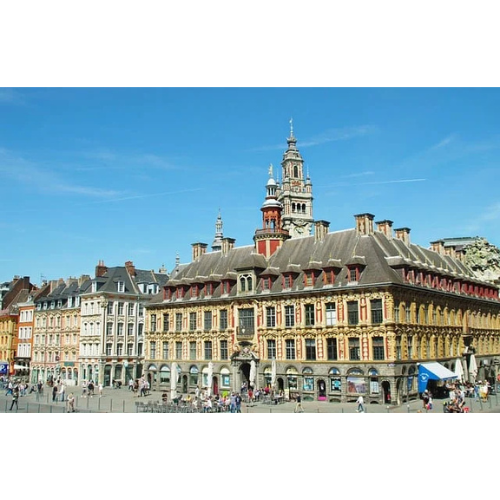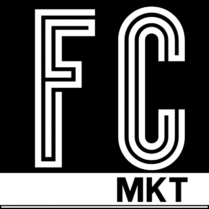Lille, France: A Rising Economic Hub for Global Investment
In the heart of northern France lies Lille, a city that has transformed itself from an industrial powerhouse into a modern hub of innovation, culture, and economic opportunity. Once known primarily for textiles and heavy industry, Lille has reinvented itself over the past decades as a strategic center for business, education, and technology. With its ideal geographic location, dynamic workforce, and growing investment climate, Lille is increasingly capturing global attention.
Strategic Location: The Gateway to Europe
One of Lille’s strongest economic assets is its geographic position. Located at the crossroads of Paris, Brussels, and London, the city is less than 80 minutes away from each of these major capitals by high-speed train. This connectivity makes Lille a perfect gateway for companies seeking to reach European markets efficiently.
Lille is also integrated into multimodal transport networks that include international airports, major highways, and shipping ports. For logistics, e-commerce, and supply chain industries, this makes the city a highly attractive hub. Investors looking to expand across Europe find Lille’s accessibility a clear advantage.
A Thriving Business Environment
Over the past two decades, Lille has attracted significant foreign direct investment (FDI –investment by a foreign individual, company, or government into a French company or business, typically involving a controlling ownership stake of 10% or more-) thanks to its pro-business climate and targeted development policies. The city hosts international companies in diverse sectors, including:
- Retail and commerce: Lille is the birthplace of retail giant Auchan and is home to many multinational retail headquarters.
- Digital and tech industries: Through initiatives like Euratechnologies, one of Europe’s largest startup incubators, Lille has positioned itself as a digital innovation hub.
- Health and biotech: With a strong academic and research presence, the city fosters startups and global partnerships in healthcare and life sciences.
- Logistics and distribution: Its location makes Lille a natural choice for international distribution centers.
The presence of Euratechnologies, hosting over 300 startups and scale-ups, underlines Lille’s reputation as a European capital of entrepreneurship. This combination of established corporations and dynamic startups creates a balanced ecosystem for investors.
Skilled Workforce and Education
A city’s potential for growth depends heavily on its human capital, and Lille delivers in this area. With over 115,000 students enrolled in its universities and business schools, Lille boasts one of the largest student populations in France. Prestigious institutions like EDHEC Business School and Université de Lille provide a continuous pipeline of talent in fields ranging from management and finance to engineering and computer science.
The city’s highly educated and multilingual workforce makes it particularly attractive to international companies seeking to establish European headquarters or innovation centers. Moreover, Lille’s young demographic contributes to a dynamic and adaptable labor market.
Quality of Life as a Competitive Edge
Lille has made significant strides in improving its quality of life, combining the charm of French culture with modern amenities. The city offers:
- Affordable living costs compared to Paris or Brussels, making it attractive for both professionals and students.
- A vibrant cultural scene, with world-class museums such as the Palais des Beaux-Arts, international festivals, and a reputation for design and creativity.
- Sustainability initiatives, including green urban planning and investments in public transport, aligning with global ESG (Environmental, Social, and Governance) priorities.
These factors enhance Lille’s appeal as a business destination y ensure long-term sustainability in attracting and retaining talent.
Lille and the Global Economy

Lille has become a player in the global economy. Its connections with international companies, cross-border collaborations with Belgium and the Netherlands, and growing integration into European Union initiatives position it as a bridge between markets.
The city is increasingly visible in sectors such as FinTech, e-commerce, and digital health, aligning with global megatrends. Furthermore, Lille’s leadership in retail innovation gives it an edge in shaping consumer markets in Europe and beyond.
What’s Next for Lille?
Looking forward, Lille is set to amplify its global relevance. Several key trends highlight its future potential:
- Digital Transformation: With Euratechnologies expanding its international partnerships, Lille will continue to attract venture capital and foster startups in AI, cybersecurity, and sustainable tech.
- Green Economy: The city’s investment in renewable energy, eco-friendly mobility, and circular economy initiatives will place Lille at the forefront of sustainable urban development.
- Logistics Innovation: As e-commerce grows globally, Lille’s logistics sector is expected to become a European benchmark for smart distribution.
- Research and Healthcare: Collaborations between universities, hospitals, and biotech firms will strengthen Lille’s position as a hub for medical innovation.
- Global Investment Opportunities: With rising FDI and ongoing public-private partnerships, Lille offers fertile ground for investors seeking stable yet innovative projects.
The economic potential of Lille is undeniable. From its strategic location and thriving business ecosystem to its skilled workforce and future-oriented industries, Lille is emerging as a European city of opportunity. Investors seeking to expand into Europe will find in Lille a gateway to innovation, markets, and long-term growth.
As the world looks ahead to the next decade of transformation, Lille is ready to deliver. By combining tradition with modernity, local strengths with global ambitions, this city has everything it needs to stand out as a leading economic hub of the 21st century.
